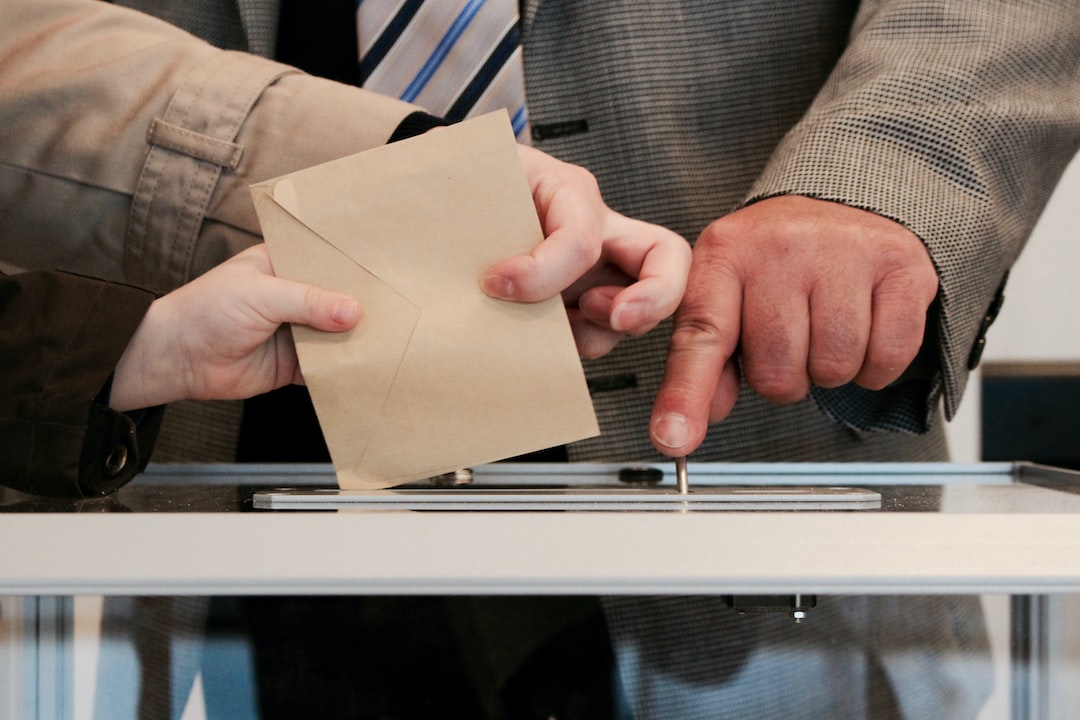Understanding the First Amendment of the United States Constitution

The First Amendment to the US Constitution is the cornerstone of American democracy. Established as part of the Bill of Rights in 1791, it is the first among the ten original amendments that define and protect the fundamental freedoms and rights of American citizens.
At the heart of the First Amendment are five key freedoms: religion, speech, press, assembly, and the right to petition the government. These freedoms provide the necessary check on governmental power, fostering a society where ideas can be freely expressed, critically examined, and robustly debated. This Amendment's profound impact resonates not only in legislative halls and courtrooms, but also in everyday life, influencing everything from our social media posts to our religious observances.
This article aims to provide an in-depth understanding of the First Amendment, exploring its historical context, individual freedoms, and its role and interpretation in our modern era.
The Five Freedoms in the First Amendment
The First Amendment embodies five freedoms that the founding fathers deemed fundamental to the functioning of a democratic society. These freedoms—religion, speech, press, assembly, and petition — reflect the value placed on personal liberties and a balanced government. Each freedom was meticulously chosen, serving as a protective shield against government encroachment on individual rights.
As we explore each of these freedoms in more detail, you'll come to understand their unique significance, their boundaries, and how they interplay to safeguard the democratic ideals upon which the United States was built.
Freedom of Religion
The freedom of religion is an essential part of the First Amendment that champions religious liberty. The founding fathers, many of whom were religious dissenters themselves, recognized the importance of this freedom in preventing government imposition of a national religion or persecution based on religious beliefs. They saw it as a path to ensure that the United States would be a land of religious plurality, allowing citizens to follow their faith without fear.
The Establishment Clause: This clause reads, "Congress shall make no law respecting an establishment of religion." In simple terms, this means the government cannot establish a national religion or favor one religion over another. It can't promote religious activities or beliefs and must remain neutral in matters of religion. This clause is why, for instance, public schools cannot lead students in prayer.
The Free Exercise Clause: This is the second part of the religious freedom guaranteed by the First Amendment, and it states that the government cannot prohibit the free exercise of religion. In essence, this clause protects the right of individuals to practice their religion as they see fit, as long as those practices do not harm others or violate public safety, peace, or moral standards. For instance, you can worship as you choose, you can wear religious attire, and you can observe religious holidays.
In sum, the freedom of religion under the First Amendment ensures that you are free to hold any religious belief, or none at all, and to practice your religion without interference from the government, thus reinforcing the principle of religious tolerance and diversity in the United States.
Freedom of Speech
The freedom of speech is a fundamental right that allows you to express your thoughts, ideas, and emotions without fear of government censorship. This freedom was chosen because the founders believed that open dialogue and the free exchange of ideas were vital to a functioning democracy. They believed that through conversation and debate, the truth would ultimately prevail.
Protected and Unprotected Speech: In general, the freedom of speech covers a wide range of expressions - from political speeches to art, music, and even symbolic actions, like burning a flag in protest. However, not all speech is protected. For instance, speech that incites violence, threats, certain types of obscenities, defamation (false statements that harm the reputation of others), and child pornography are considered "unprotected" and can be regulated by the government. Determining whether a type of speech is protected or unprotected can be a complex process, and is often up to interpretation by the courts.
Modern Interpretation: Over time, the interpretation of freedom of speech has evolved with societal changes and advancements in technology. For example, the advent of the internet and social media platforms have greatly expanded the realm of free speech. Online, you can voice your opinions to a vast audience. However, the relative anonymity of the internet also raised new challenges, such as hate speech and cyberbullying. Courts have been working to strike a balance between protecting freedom of speech and preventing harm, a task that has proven to be challenging in the digital age.
The freedom of speech remains a robust and vital aspect of American democracy, allowing a diversity of voices to be heard and fostering an environment where ideas can be freely challenged and debated.
Freedom of the Press
Freedom of the press is a vital liberty that allows journalists and media outlets to report news and express opinions without government intervention. The founding fathers considered a free press crucial for an informed citizenry, which is the bedrock of a functioning democracy.
Role of a Free Press in Democracy: A free press plays an essential role in promoting transparency and accountability in government. Reporting on public affairs, it informs citizens about the activities of their government, thereby equipping them with the knowledge to make informed decisions, such as voting in elections. This freedom allows the press to serve as the "fourth estate" of government, a watchdog role that keeps power in check and upholds democratic values.
Limitations and Controversies: However, the freedom of the press, like all freedoms, isn't without limitations. It doesn't grant the press the right to publish defamatory or libelous material, invade personal privacy, or compromise national security. Over the years, controversies have arisen over these limits, leading to legal battles and public debates. There are also ongoing challenges concerning media bias and the rise of "fake news," which have sparked conversations about journalistic ethics and the need for responsible reporting.
In essence, freedom of the press is a critical part of our democratic society, allowing for the free flow of information and serving as a crucial check on government power. It permits the press to play its vital role, but it also brings to the fore ongoing debates about the balance between freedom and responsibility in journalism.
Right to Peaceful Assembly
The right to peaceful assembly is the constitutionally protected freedom that allows you and others to gather for peaceful and lawful purposes. The founding fathers, having used public assemblies to advance their cause during the Revolutionary War, understood its power to effect social and political change.
Historical and Modern Protests: Throughout history, this right has been exercised in various forms - from the suffrage parades in the early 20th century that advocated for women's right to vote, to the civil rights marches of the 1960s, and, more recently, the Black Lives Matter demonstrations and climate change protests. These gatherings allow citizens to collectively voice their concerns, advocate for change, and draw public attention to important issues.
Legal Limits: While the right to peaceably assemble is a critical part of our democracy, it does come with legal limits. For instance, the government can enforce time, place, and manner restrictions - such as requiring permits for large gatherings, prohibiting protests at certain hours, or limiting noise levels. Furthermore, this right does not protect assemblies that incite violence, block public access, or create significant public disorder. These restrictions are designed to balance the citizens' rights to express their views with the community's rights to safety and order.
In a nutshell, the right to peaceful assembly allows citizens to come together, voice their opinions, and advocate for change, reflecting the dynamic, participatory nature of a democratic society.
Right to Petition the Government
The right to petition the government is a critical aspect of the First Amendment that enables you to express your grievances to the government and seek remediation. This freedom traces its roots back to the Magna Carta in 1215 and was included in the First Amendment due to the founders' belief in the importance of direct communication between citizens and their government.
Meaning and Significance: The right to petition allows citizens to approach the government with concerns about unjust laws or request modifications to existing policies. This communication can take several forms, such as letters, emails, lawsuits, or even protests. This freedom reinforces the principle that the government is accountable to its citizens and is obliged to address their concerns.
Notable Examples: Throughout history, this right has led to significant changes. A notable instance is the women's suffrage movement in the late 19th and early 20th centuries, where numerous petitions were sent to Congress demanding women's right to vote. More recently, in the digital age, online petitions have gained popularity, allowing people to garner support for a variety of causes and potentially effect change on a wide scale. For example, several online petitions have been successful in prompting policy reviews and changes at local, state, and even national levels.
In essence, the right to petition the Government offers an essential tool for individuals to engage with their government, demand accountability, and contribute to the shaping of societal laws and norms.
The First Amendment in the Modern Era
As society evolves, so too do the interpretations and applications of the First Amendment. In our modern era, this Amendment continues to be at the center of numerous debates and controversies.
Universal Protection of the First Amendment Rights
Interestingly, the First Amendment does not specify a legal age or citizenship requirement for its protection. This means that its protections extend to all people within the United States, regardless of their age or citizenship status. From students expressing their views in school, to non-citizen residents voicing their opinions, the First Amendment safeguards the fundamental freedoms of all, underscoring the universal and inclusive principles of American democracy.
An In-depth Guide to the First Amendment
Understanding the First Amendment is essential to appreciating the democratic freedoms we enjoy today. This cornerstone of the US Constitution safeguards the rights that underpin our society, enabling open dialogue, promoting accountability, and protecting personal liberties. While challenges arise as we navigate modern complexities, especially with technological advancements, these trials only reinforce the Amendment's relevance and resilience.
Want content like this?
Hire a vetted writer on Draft
Get Started
Other samples

Eco-Friendly Product Email Campaign
Explore EcoLiving's Earth Day sale for high-quality, eco-friendly products that blend style and sustainability. See why our customers love our reusable shopping bags, biodegradable cleaning products, and bamboo kitchenware.

Online Course Email Campaign
Unlock your digital marketing potential with SkillUp's transformative and comprehensive course. Act now for a limited-time 20% discount. Lead the digital evolution!

FinManage Email Campaign
Explore our new feature for instant financial reporting, offering a mobile, efficient solution for your business finances. Dive in and experience the future of financial management.
